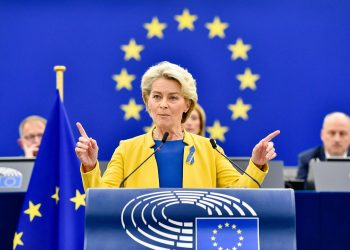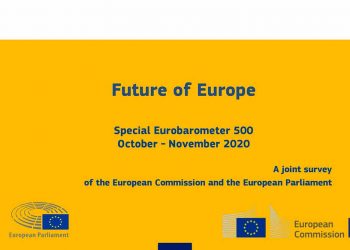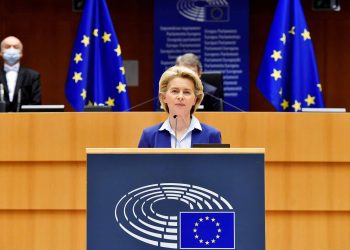On 3 February, President Charles Michel spoke at the ‘Masters of Digital 2021’ online event for the European strategic autonomy. He said: “We must use our new digital resources wisely to protect the ‘environment’ of our fundamental values – democracy and individual freedoms.”
The European Council agreed on an agenda for the EU for the next five years. ‘A new strategic agenda 2019-2024’ sets out the priority areas that will steer the work of the European Council and provide guidance for the work programmes of other EU institutions.
Digital sovereignty is central to European strategic autonomy
Speech by President Charles Michel at “Masters of digital 2021” online event.
It’s a real pleasure to speak about our Digital Agenda – a topic that is having a profound effect on our common future. And a topic, during this pandemic, that’s having such an immediate impact on how we do business, how we govern, and how we go about our daily lives.
Digital is one of the two pillars, with climate change, of our European transformation strategy. A strategy conceived and launched well before any of us had heard of COVID-19. And this pandemic is making our digital strategy more necessary than ever.
Today I want to focus on why our Digital Agenda is crucial to our European strategic autonomy. Then I’d like to say a few words on how our Digital strategy can help us get there.
What do we mean by “strategic autonomy”?
It means more resilience, more influence. And less dependence. The EU is the number one trading powerhouse in the world. We have negotiated significant trade agreements with other major economies and regional blocks. We are an open market economy. And we believe trade is beneficial to our economy and to our population.
Strategic autonomy is about being able to make choices. We want greater autonomy and greater independence in an open and global environment. This means reducing our dependencies, to better defend our interests and our values. We want a more level playing field and more fairness in today’s globalised world.
Interdependence is natural, even desirable.
Over-dependence, however, is not. So, strategic autonomy has nothing to do with protectionism. On the contrary.
COVID has shone a brutal spotlight into every corner of our societies. It has revealed our strengths, but also our weaknesses. This is particularly true where our over-dependence makes us vulnerable. In healthcare, for example – the supply of face masks or critical medical equipment. Or in the digital sector – the supply of microprocessors and telecom infrastructure.
Strategic autonomy does not mean producing everything ourselves. This is neither desirable nor realistic. We don’t seek to be stronger to be more self-centred. Quite the opposite. We want to be strong, independent and confident to look outwards, beyond our borders – to contribute to a better, fairer and greener world.
No strategic autonomy without digital sovereignty
You know, better than most, the pivotal role that digital sovereignty plays in our greater goal of strategic autonomy. I won’t lecture you on business or technical issues – you are the specialists. But it might be useful for you to hear how we – European leaders – frame our digital agenda in the global context.
Huge opportunities
The world is on the brink of the next stage of the fourth industrial revolution. Europe has enormous potential in the fields of data, artificial intelligence and the internet of things. Our industrial data, for instance, represents a massive resource. And the move towards edge computing will put Europe in a much more favourable position, than in the previous stage, where non-European actors took the lead in personal data gathering, and cloud computing.
The potential of this new kind of resource seems infinite. But we must not repeat the errors of the past: the over-exploitation of our natural resources. We have abused these resources and brought our planet – and our biodiversity – to the edge of disaster.
So we must not abuse data – our new 21st century resource – in the same way. In recent years, however, we have seen the abuse of personal data – the over-exploitation of data by companies in pursuit of profit. Or by states, like in China, for the purpose of controlling their citizens.
We must use our new digital resources wisely to protect the “environment” of our fundamental values – democracy and individual freedoms.
It is not only a political issue, it’s also an economic one. We must ensure the sustainability of these resources. Citizens will not accept to be transformed into objects, to see their personal and consumption choices guided by secret algorithms.














